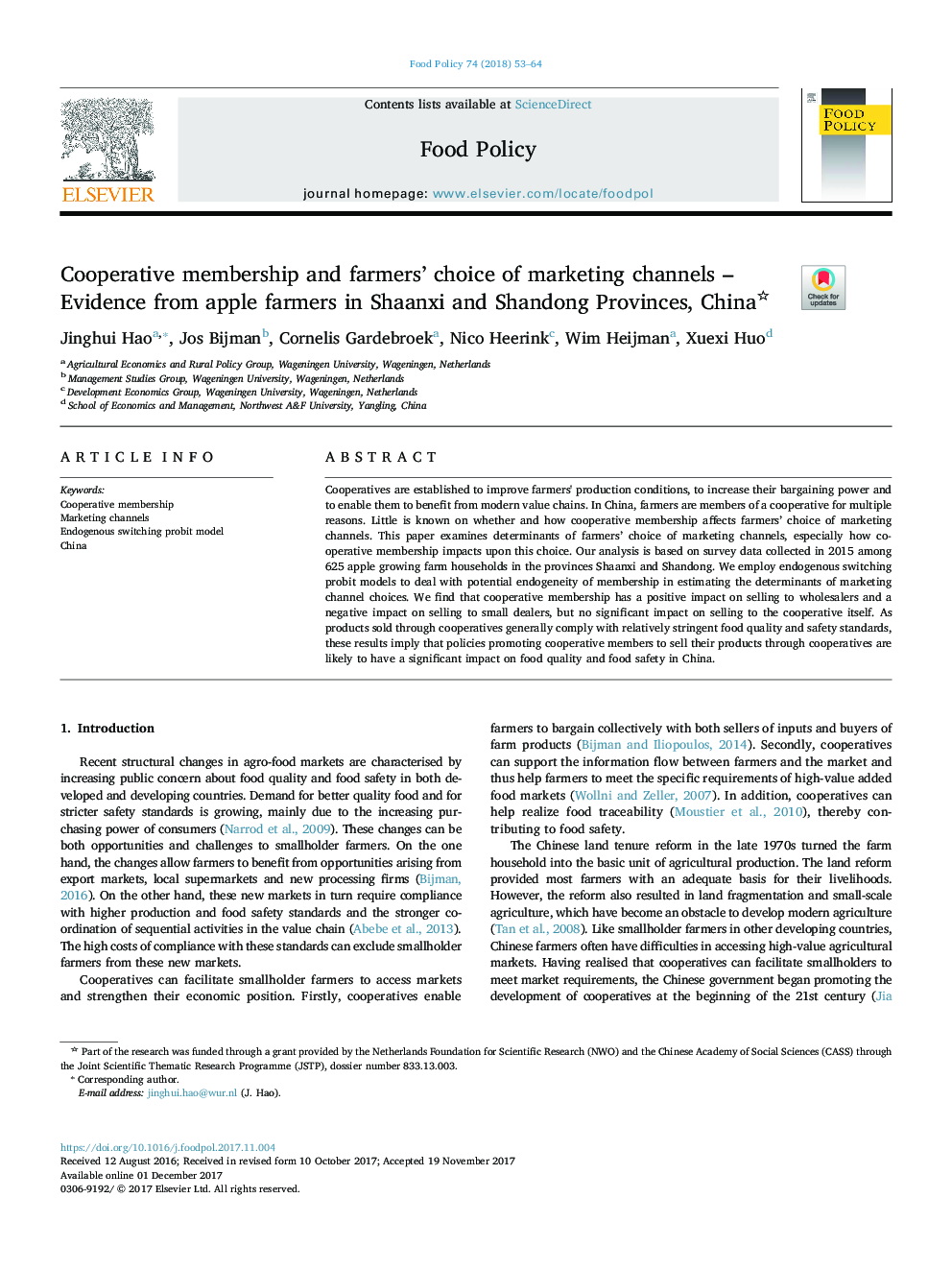| Article ID | Journal | Published Year | Pages | File Type |
|---|---|---|---|---|
| 7352548 | Food Policy | 2018 | 12 Pages |
Abstract
Cooperatives are established to improve farmers' production conditions, to increase their bargaining power and to enable them to benefit from modern value chains. In China, farmers are members of a cooperative for multiple reasons. Little is known on whether and how cooperative membership affects farmers' choice of marketing channels. This paper examines determinants of farmers' choice of marketing channels, especially how cooperative membership impacts upon this choice. Our analysis is based on survey data collected in 2015 among 625 apple growing farm households in the provinces Shaanxi and Shandong. We employ endogenous switching probit models to deal with potential endogeneity of membership in estimating the determinants of marketing channel choices. We find that cooperative membership has a positive impact on selling to wholesalers and a negative impact on selling to small dealers, but no significant impact on selling to the cooperative itself. As products sold through cooperatives generally comply with relatively stringent food quality and safety standards, these results imply that policies promoting cooperative members to sell their products through cooperatives are likely to have a significant impact on food quality and food safety in China.
Keywords
Related Topics
Life Sciences
Agricultural and Biological Sciences
Food Science
Authors
Jinghui Hao, Jos Bijman, Cornelis Gardebroek, Nico Heerink, Wim Heijman, Xuexi Huo,
